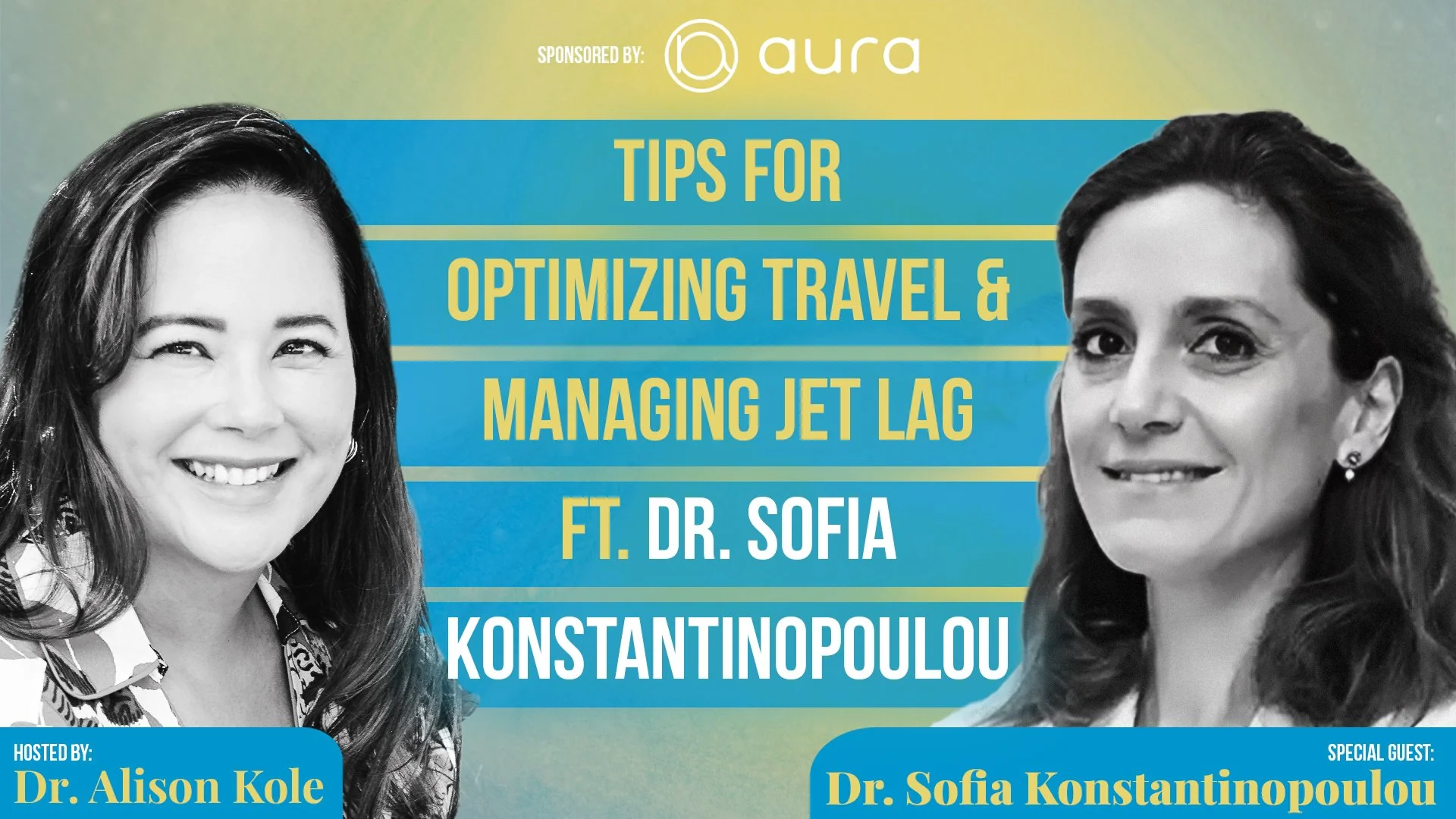Winning the Jet Lag Battle: Expert Sleep Tips for Travel Recovery
In Season 5 Episode 2 of the Sleep Is My Waking Passion podcast, I had the pleasure of speaking with Dr. Sofia Konstantinopoulou, a board-certified pediatric pulmonologist and sleep medicine expert, currently based in Abu Dhabi. Our conversation centered around a topic many of us can relate to: jet lag. Whether you’re traveling for business or pleasure, jet lag can wreak havoc on your body’s internal clock. Here’s a breakdown of key takeaways from our conversation on managing jet lag and maximizing your rest during travel.
What Exactly is Jet Lag?
Jet lag occurs when your body’s natural circadian rhythm, which governs sleep-wake cycles, becomes misaligned with the local time zone. This usually happens after crossing several time zones in a short span, especially when traveling long distances. Symptoms include fatigue, difficulty concentrating, and disrupted sleep patterns, which can affect your productivity and overall well-being during a trip.
Westward vs. Eastward Travel
Dr. Sofia shared an important insight: traveling west (like going from the East Coast to the West Coast of the U.S.) tends to be easier on your body than traveling east. When you head west, your body naturally adjusts to staying up later, which is easier to manage than forcing yourself to sleep earlier after eastward travel.
To prepare for westward travel, consider adjusting your bedtime by about an hour each night before your trip. Once you land, try to sync up with the local time as much as possible—go outside for light exposure, eat on the local schedule, and participate in daily activities to help reset your internal clock.
Handling Eastward Travel
Eastward travel, like a trip to Europe, can be more challenging. Dr. Sofia recommends trying to sleep during your flight and wearing sunglasses when you land to minimize unwanted light exposure. If you arrive in the morning, avoid bright sunlight early on and ease into daylight exposure later in the day. This helps your body adjust to the time zone shift. Additionally, be mindful of your sleep environment—a dark, cool, quiet space can significantly improve your sleep quality.Why We’re Missing It (And Losing Lives Because of It)
For decades, most of the research dollars went into heart disease, not brain health. Sleep apnea is still underappreciated as a neurological risk factor. And culturally, many dismiss it, especially in communities where being lean or young shields you from suspicion.
But thin people get it. Women get it. Asian populations, with different facial structures, are particularly predisposed. And yet, they are often overlooked, with devastating consequences.
Tips for Managing Jet Lag
Hydration is Key: Drink plenty of water, and avoid alcohol and caffeine leading up to your trip. While alcohol may help you fall asleep initially, it can fragment your sleep and leave you feeling less rested.
Pre-Travel Adjustments: Ideally, try to adjust your bedtime a few days before your trip, especially if you’re crossing multiple time zones. However, Dr. Sofia and I both admitted that in today’s fast-paced world, it’s often difficult to stick to this advice!
Melatonin Supplements: Melatonin can be useful, especially when traveling east, but Dr. Sofia cautioned that it’s important to use it correctly. Always consult your healthcare provider before starting melatonin, as it can vary in quality and effectiveness depending on the source.
Meal Timing: Aligning your meals with the local time zone can help your body adjust faster. Research suggests that our circadian rhythm extends to our gut, so eating breakfast, lunch, and dinner according to the local time can further anchor your body’s internal clock.
Light Exposure: As Sofia pointed out, light is one of the strongest signals to reset your circadian rhythm. Try to get natural sunlight exposure during the day, but avoid bright light in the evening if you’re trying to go to bed earlier.
Power of Technology in Sleep Management
We also talked about the Aura Circle mask, which we both recommend for travelers dealing with jet lag. This mask provides a blackout environment, has soothing features like lavender scent, and includes Bluetooth capabilities, so you can listen to calming music, white noise, or meditation apps. Its gradual sunrise alarm feature can also help you wake up gently and in line with your circadian rhythm. I used it personally during my trip to Hawaii and found it invaluable for catching some light sleep and staying refreshed.
Conclusion: Don’t Stress, You Will Adjust!
Jet lag is a temporary disruption, and most people will eventually readjust after a few days. The key is to prepare in advance, stay hydrated, be mindful of light exposure, and use helpful tools like the Aura Mask or apps like TimeShifter to ease the transition. Even if you don’t follow every guideline perfectly, your body will naturally find its equilibrium, and you’ll be back to your usual sleep pattern before you know it.
For anyone who travels frequently or has struggled with jet lag, Dr. Sofia’s insights offer practical solutions to minimize the discomfort and maximize your productivity and well-being on the road.
Subscribe to my YouTube channel here. Also available on Apple Podcasts & Spotify.
For more sleep tips, advice, and solutions, sign up for my monthly newsletter below, where we help you get the rest you deserve!
